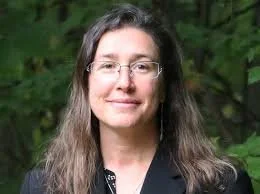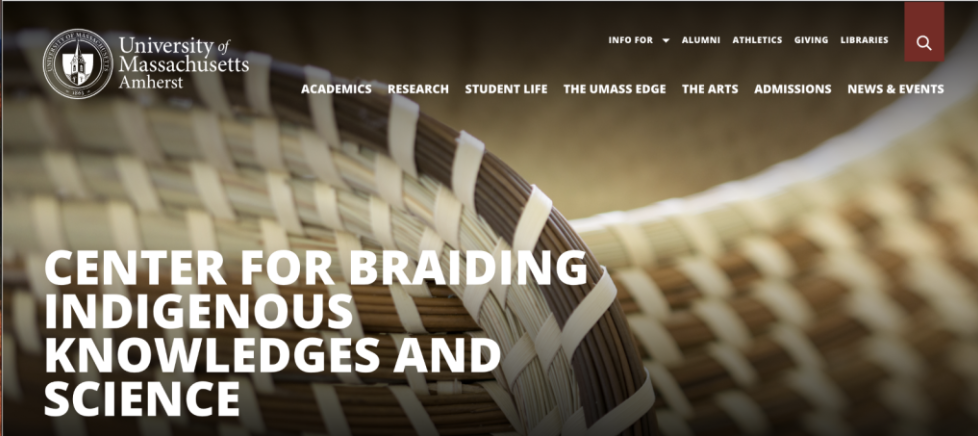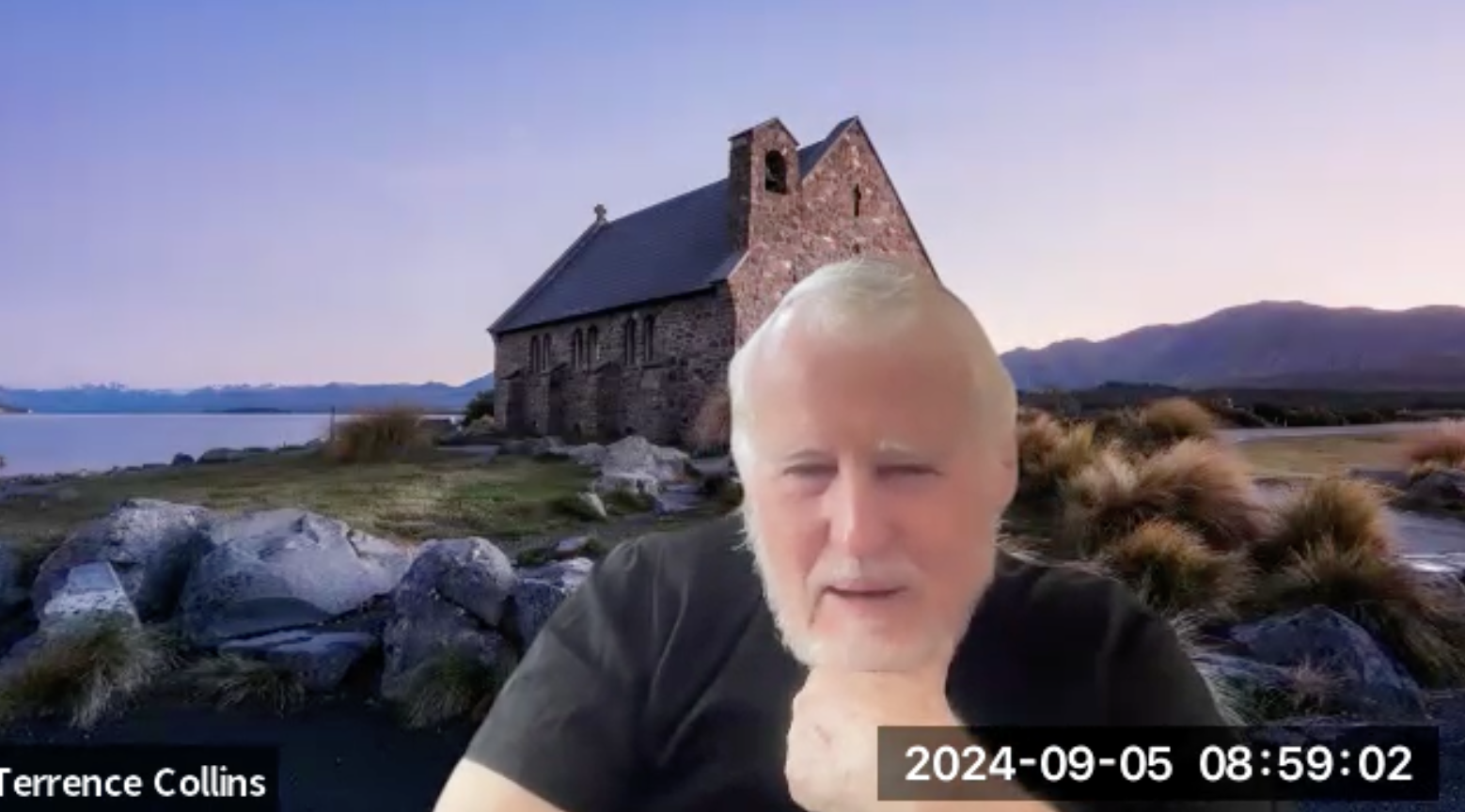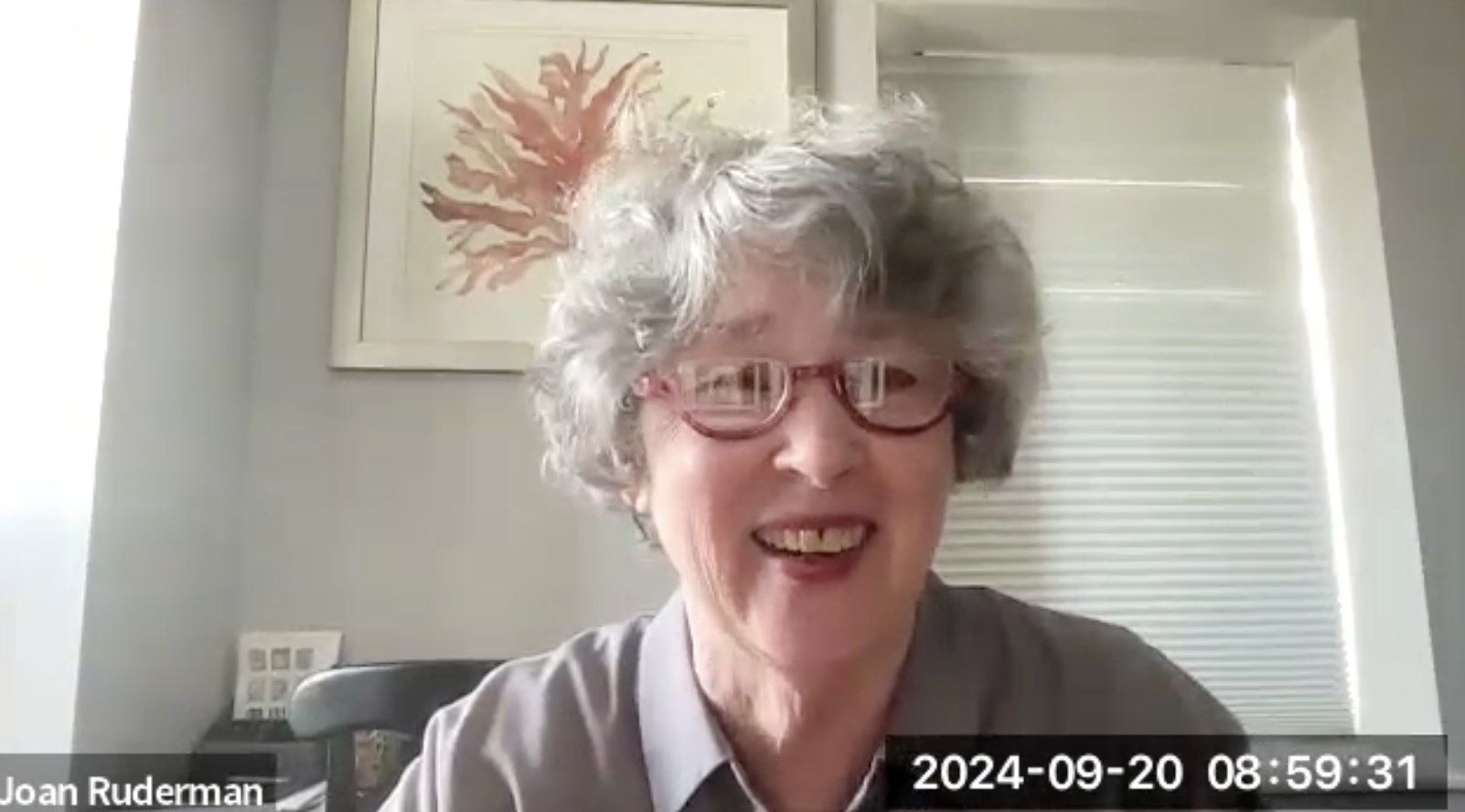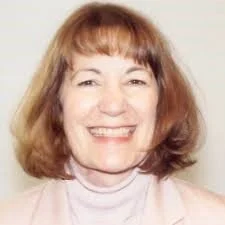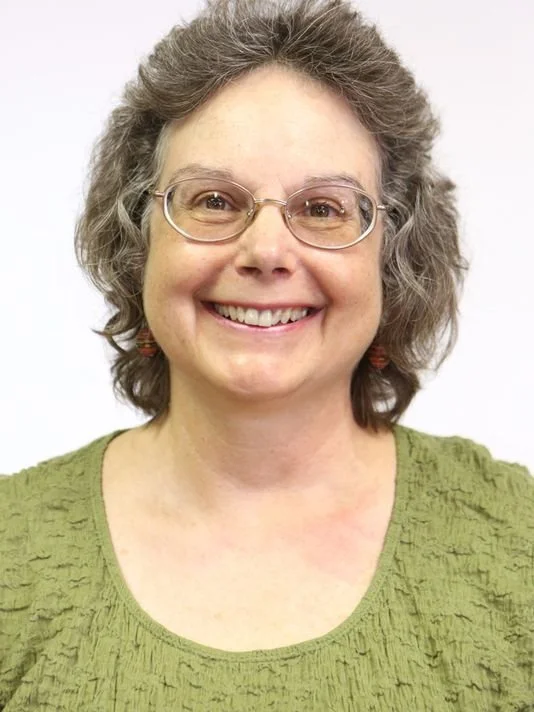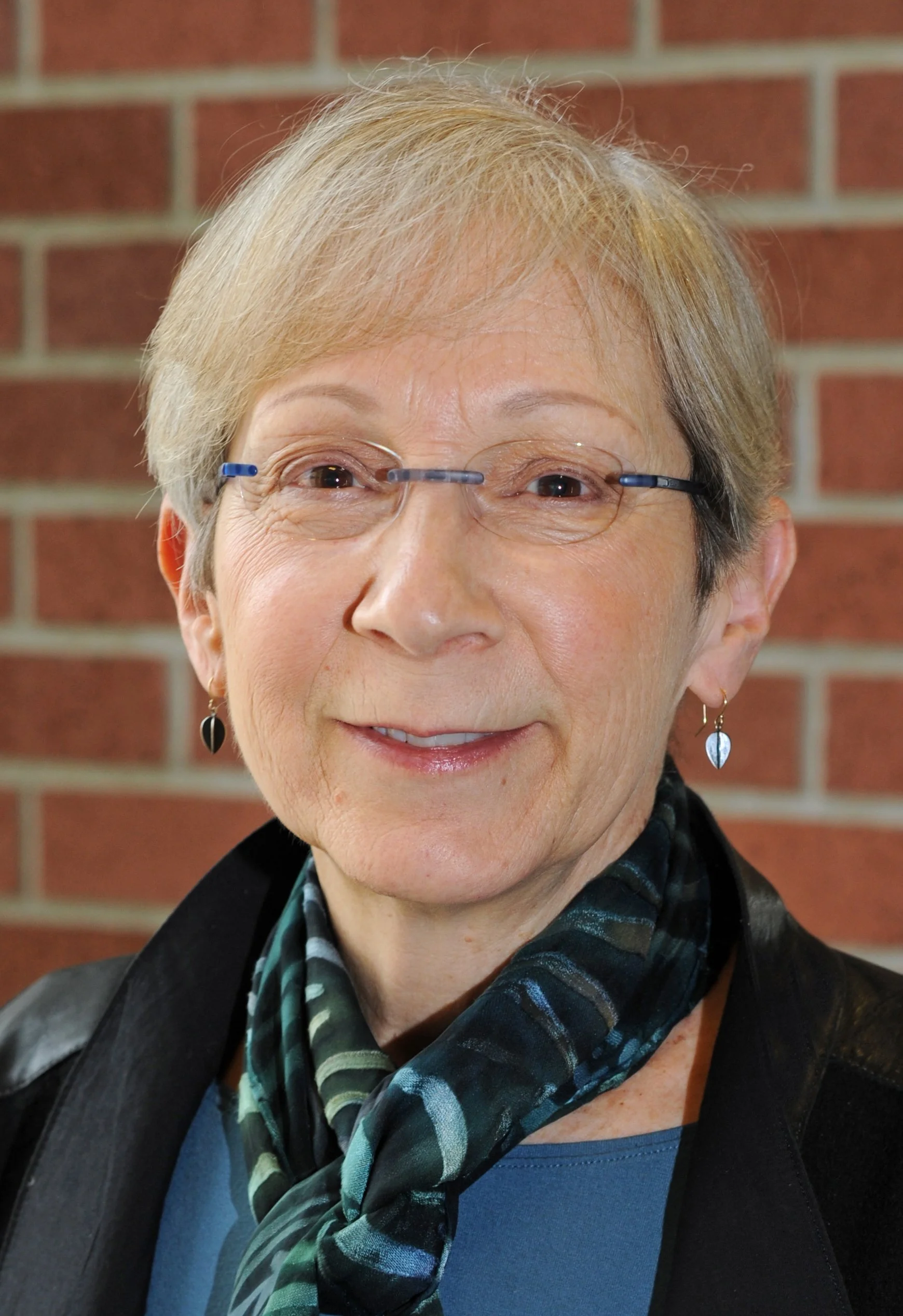Dr. Laura Vandenberg, PhD, Associate Vice Chancellor, Vice Provost for Research and Engagement, and Professor of Environmental Health Sciences at UMass Amherst, has specialized for many years in endocrine-disrupting chemicals (EDCs), reproductive and developmental biology, and hazard assessment. She has conducted ground-breaking research into the effects of Endocrine Disrupting Chemicals (EDCs) on mammary glands and reproductive health in rodents and has a grand overview of EDCs that she shares yearly at the ECHO seminar at Woods Hole.
I’ve been thinking about how Dr. Vandenberg (Laura) talks about the people working in her lab, that they come to adore each other, that “your legacy is the people who work with you.” Laura is exceptional. But all of us professors are lucky to have students, and we are lucky to still be mentored ourselves. I feel immense gratitude for the faculty and students of ECHO, for all these amazing scientists who have shared their time and perspectives with a no-name professor with a story from Benedictine University. As I think of all the people I have met who are working hard to improve our world in this most essential way, I feel a swelling of not only gratitude, but also love and community. Like the EDCs arrant in the world, wreaking havoc with biological systems that were not their intended target, like the braiding together Laura mentions in Indigenous knowledge, everything is connected to everything else. Everyone is connected to everyone else. We are not in this alone. May love outweigh hate. May hope and hard work prove stronger than anger, division, greed, and selfishness.
This interview has been edited for length and clarity.
JMK: Hey, Laura – it’s so good to see you! How are you doing?
LV: I'm okay. I seem to forget that I can't teleport between meetings. So I'm remembering that it's that time of year where you have to have walking time.
JMK: And time to pee, right?
LV: Exactly. The body is still a living thing. “Oh, did you need time to eat?”
JMK: And I know how busy you were this summer. Now I saw that you are Vice Chancellor for Research. But you were also Vice Chancellor this summer, right?
LV: I was Vice Chancellor. I'm now Associate Vice Chancellor and Vice Provost for Research. So it's again a new learning curve, and I like to think there's some evidence that continuing to learn new things into your midlife period helps your brain stay young. I'm not sure if it's true.
JMK: I feel that way.
LV: It’s working so far. But I think last year my body aged the way that Barack Obama did during his presidency, like you could see the before and after. And you're like, Whoa!
JMK: Oh, my gosh, yes, it's a lot. And do you even have very much time for research?
LV: Not enough. The good or bad thing is that I just made a list of all the papers that I'm working on right now. I've got seven papers I'm writing right now, so I probably have a good three years' worth of papers to write before I'll run out, and then I can figure out what I'm going to do next.
JMK: Well, great, and I will look forward to seeing the new papers.
LV: Oh, yes! There's one under review right now is written mostly by undergrads, which is always really delightful for me when we can have undergrads be responsible for research. I have a lot of undergrads who work in my lab, but usually they do a little piece of a much bigger project, and a grad student runs the bigger project. But this one was mostly undergrads, with a little help from a grad student. So I'm really proud of them and hopeful – it's already gotten a really nice review, and we just sent it back two weeks ago, so I've got my fingers crossed for them.
JMK: I always felt lucky I had that opportunity myself as an undergrad – I’ve never forgotten that work with rats. I loved it so much.
LV: Well, and for many of them, they don’t know for sure what they want to be when they grow up, but they have some idea. I figure it’s my job to help them navigate that path. And for some of them, being an author on a paper is the thing that is going to get them into that next stage because they might have imperfect grades. I don't know if anyone takes the GRE anymore, but I have a lot of students who have severe test anxiety. And so giving them another thing that they can talk about when they interview is great. It's a gift to them. I love that.
JMK: Yes, absolutely. You probably have many academic children, so to speak….
LV: Yes – out in the world, right?
JMK: Well, I want to make best use of your time, and so I do have a list of questions. What I really want is your stories and your insights. But we do not have to follow any sort of script. I talked with Terry last week, and he just talked.
LV: Yes, he does.
JMK: It was awesome. Okay, so the first question that is on my list is basically, how did you get where you are? And what first prompted your research, and especially in this environmentally attuned research that you've been doing?
LV: I was a weird kid – I was a kid who, when our television broke in the early 90s – it was one of those giant console TVs – I remember saying to my parents, can I take that apart? I wanted to see what was inside this giant box. The same was true.... I grew up in the country. A lot of the members of my family are hunters. I never wanted to kill something, but once it was dead, I wanted to take it apart. That’s kind of a weird thing for a little kid.
I remember in fourth grade, learning about the different body parts, and learning about the lungs, knowing that your lungs were responsible for the exchange of oxygen and carbon dioxide, and wanting someone to explain to me how. I needed someone to tell me the story of hemoglobin. So those are some of my earliest memories of having that recognition that I am a scientist. And I was lucky enough to have teachers and parents who really encouraged that curiosity of mine. So when I went to college, I was a biology major. Everyone who was a biology major was pre-med, which meant that I was pre-med for a hot second. Everyone who was a biology major who was happy to squirrel themselves away and just memorize the textbook – I remember thinking, that was not for me. I wanted to take things apart. I wanted to know how things worked.
When I was in college, my mother was also in college. My mother was doing her bachelor's degree at the same time, and so I remember telling my mom that I was frustrated that I didn't quite know what I was going to be when I grew up, and I hadn't found my place yet, and she said to me – this was probably the year 2000-2001 – colleges have job boards – go find a job in a research lab and learn something.
So that’s what I did. I went to work in a research lab that focused on proteins that are passed from male flies to female flies during mating, and how those proteins change the physiology of the females. They induce ovulation. They can induce sperm storage. They change the behavior of the female so she’s less likely to mate with another male. A male is transferring a protein that makes you less likely to mate with another male – that’s fascinating! And I fell in love with the lab. I fell in love with microscopes. I didn't love fruit flies.
I really became fascinated by reproduction. I was an undergrad – I was 20 – I didn’t want to be anywhere else but in the lab. I was the kind of kid you have to throw out of your lab and say, go home. I probably had some papers to write, something to study.
But everything else started to make more sense. As an undergrad biology major, you read about things like the Western blot to evaluate whether proteins are expressed. But I was then doing them in the lab, and everything made more sense. So I learned better – I enjoyed my classes more. It was great for me. That’s when I had this realization: Yes, research. Yes, reproduction. Yes, this concept of physiology writ large.
I went right into a PhD program from undergrad. I applied only to programs with strength in reproduction in some way, and I got my PhD at Tufts Medical School. That is where I got introduced to the idea that environmental chemicals would alter signaling, that environmental chemicals are altering physiology. And I have not looked back since.
So I am a biologist by training. I am an endocrinologist and a developmental biologist. Those are the questions that I really love. But my academic appointment is in environmental health sciences, and I love being in a department that allows me to think about the application of biology and the application of all these other fields and disciplines that ultimately affect the things I care about most, like how hormones work in the body, how development happens or doesn’t happen as it’s expected to. So I have the dream job to be able to mix all these different fields and to still be that weird kid, taking things apart and trying to figure out how things work.
JMK: Oh, I love that. That is such a good origin story. And I have to say, teaching global environmental health to my students can be very depressing. But every once in a while, a student will say, “Well, that's pretty interesting.” I’ll say, “yes, okay, it's very depressing. But it's a super interesting problem, what we are doing to ourselves.” So yes, it is interesting to have those two perspectives. Because it matters, right? All this matters so much.
LV: That’s right.
JMK: Wonderful. So I am just astonished by the breadth and depth of your research. I love your research, and especially, I think, because it's mammalian, I really enjoy it. But what would you say is the one thing you are proudest of?
LV: Oh, that's a great question. The thing I am most proud of…. Pride is like a dirty word for me. So it might not be research. I think it’s actually the fact that the work that I do is quite accessible to people. In the summertime, I have high school students who work in my lab; I have college students who find out what I do, and even when they don’t want to work in a lab, they want to work on projects related to what I do, and I find room for them.
I think the thing I am most proud of and the thing that is always our legacy – is the people whom we train. I work at a public university. I see it as part of my duty to train the next generation of leaders for the state, for the Commonwealth of Massachusetts.
And I am incredibly proud of the legacy that I have created through my students – the ones who are really my students, who work in my lab, not the thousands I teach in classes. They go on to grad school, med school, dental school, PA school, nursing school. They study public policy and get their MPHs. I am incredibly proud of them – that they take what I have taught them on to the next thing – to be a better physician or public health professional or scientist or whatever comes next. That’s what I’m proud of.
JMK: That's a good one. Yes. I think that comes across even when you were teaching us in the ECHO Seminar. You were very nurturing to us as well. Right?
LV: Scientists get a bad rap for being people who don’t know how to interact with other people. It’s definitely true for a good percentage of scientists. But for me, relationships are everything, and we do better work together when we understand each other, when we can talk to each other, when we can speak honestly about our own experience. All of that informs what we do in the lab. It informs the questions we ask. Some of the coolest projects came from a student asking me a weird question, and the fact that they were not afraid to ask that question – or for me to say, “here’s the thing I am thinking about” and having them go run with that – that comes from a place of trust. You don’t have trust if you don’t focus on relationships.
The people who work with me stay with me for years. So we kind of learn to adore each other, right? It is a caring relationship. So it’s a privilege to be their mentor.
JMK: Oh, that’s lovely!! You should take some of these quotes and put them in your own PR – for the university.
LV: I would love that.
JMK: And it has the merit of being true.
LV: I mean, honestly, there are papers I've published where people think oh, that's your legacy, but your legacy is the people who work with you.
JMK: I love that, and I think that that is very true!
All right. So, you know, the book is focused on Children's Environmental Health. And I think it's very tough to communicate, and especially to an audience that might include parents, about the implications of your work, which are fairly scary. Do you have any advice about how best to present and treat a topic that is both essential to prevention and also generative of anxiety?
LV: That’s really important. It resonates with me a lot. I often speak to the public, and at the end of those talks, I have a tearful mom wanting to talk to me about whether such and such a thing that she did led to such and such disease or condition in her kiddo. And those conversations are absolutely the worst.
Here we have someone who has already gone through tremendous turmoil with their child. And now they have that feeling, which they already had, that they had done something wrong. I have had emails from parents and conversations with parents – and it’s often a thing that they target…. I had a mom ask me, “is this because of the milk cartons that I used? Is this because of the baby bottles that I chose?”
I have very honest and open conversations with parents. The answer to that is always no. And that’s an honest answer, right? Your choice of a milk carton did not give your child autism. Your choice of a plastic baby bottle did not give your kid cancer. It didn’t, right? We live in a stew where all these things are contributors, and they are not within your control.
When I give talks that are intended for the public, that are intended to tell them about the hazards that are in our world, I talk about what they can control and what they cannot control. I talk about how the most effective change that we can have happens at a level that is not on the individual, and I can give them very specific examples. There are intervention studies where experts like me took human populations, measured exposures to a bunch of chemicals, and then did an intervention and measured how their exposures changed. And in almost every single one of those studies, that intervention decreases their exposures to a whole bunch of things and increases their exposures to something else – because even we as scientists cannot walk through the supermarket and avoid these chemicals. We as scientists cannot go shopping for clothes and electronics and cleaning solutions and avoid these chemicals – because we cannot control what is not on the label. You cannot know what is in the products. And we are very well educated on this. I talk about this very openly.
And I really lean into that when talking to decision makers, because they need to understand that their constituents, the people that they're supposed to represent or support or protect – cannot be responsible for protecting themselves from these exposures. And that means that we – those of us who are in the decision-making process – need to do better, to remove these chemicals from all kinds of things in our lives.
JMK: Absolutely! Your mouth to God's ear. Yes – it's really difficult. I'm someone who does attribute my daughter's cancer to certain really distinctive and very heavy exposures. But I also understand that first of all, you never get certainty. And also, diseases like cancer, and probably autism, also are multi-factorial.
LV: They're complex. Yes, that's right. Yes, but also I'm going to guess, without knowing the entire story of your kiddo, that you weren't the one spraying those pesticides.
JMK: No.
LV: Right? So the point is that there is so much that is not in our control, and what we don't want is for parents who live in farm country where their kids are potentially living in pesticide spray areas to think that somehow it is their responsibility because of where they “chose” to live, as if we make those sort of choices in that way.
JMK: No. For us it was mosquito spraying without our knowledge or permission. I have a student whose brother died of leukemia and she got non-Hodgkin's lymphoma, and they lived in the middle of a farm field sprayed for tomatoes. So I mean, you can anecdotally put this together. You can put it together with numbers and statistics and epidemiology and know that there's a connection. But it's absolutely true. You cannot control most of these things. They are controlled from the top.
LV: Yes.
JMK: That is an excellent segue to the next question, which is about policy. If we could – and I wish I could do this – make you single-handedly responsible for US policy regulating environmental chemicals going forward, what would the policy look like? How would we change? And then what can ordinary citizens do to help get there?
LV: Part of the underlying issue is the way we address chemicals – because it’s not just the EPA, right? It’s also FDA. And this is really challenging because the same chemical could be regulated by both of those agencies very differently.
But the way chemical safety and hazards evaluations have been going in the US is that we prioritize data produced by the manufacturers. It doesn’t need to be said that those might not be the most trustworthy data. We prioritize the testing of chemicals using insensitive methods. The reason why sounds more cynical than it really is – but we need simple methods for evaluating chemicals. Well, many people in the US and even more so in Europe, are against the testing of chemicals on animals. There are no cell-based tests for things like autism, right? You can’t test for autism in a cell culture. And you can’t really test a lot of other diseases. The breast – the organ that is my favorite to study – there is no cell-culture model to identify things that affect development or function of the breast.
There is a push for doing more testing in cells, in in-vitro systems – but then, the way the regulations are set up, you can’t actually use that to regulate a chemical – you have to show an adverse effect. A big part of the problem is that the system is set up to support inertia. What that means is that when we have data about risks associated with chemicals, there is often an insufficient way to incorporate new data.
We have an expectation where, no matter what kind of data you have, it is the wrong kind of data at that moment. So you can’t use cell-based data because you can’t see an adverse effect in cells. Well, animal data are rejected because animals are not humans. Human data are rejected because you didn’t control the exposures to the humans. It’s environmental epidemiology. So what are the right data? That is an answer that helps support inertia. And that’s really unfortunate – because ultimately it means that we leave people at risk. With pesticides, the review period – when we look back and say there might be a concern – is often 10 years. So things get approved, and it’s really hard to unapproved them for that period of time. For chemicals that have been approved for use in food, there is no looking back. Once it’s approved, it is really impossible to get it back out of the food supply and the food chain.
So yes, these are real problems.
So if I am in charge, I get to land down in a US that has no policy. I’m writing it from scratch. There needs to be better testing of chemicals, guilty until proven innocent. There needs to be real essential uses – there may be some really nasty stuff we use for really nasty purposes. But that should be all that it’s used for. Even some of those not-so-nasty things – I think about a chemical like oxybenzone, which my lab has studied in sunscreen – you might say, well, we need it in sunscreen. But do you need it in food packaging? Do you need it in clothing? Because our exposures are coming from those other places as well. And we need the ability to reevaluate the safety of chemicals as new data become available. And we need to recognize that while all data, all study designs are imperfect, that uncertainty is accounted for. And decision making should not reject the very best designed epidemiology studies simply because they are not randomized controlled trials, which we would never do with these environmental chemicals because you would never get approval. It wouldn’t be ethical to purposefully expose people to these toxic chemicals.
JMK: Which we are already doing.
LV: We already are – right.
JMK: Gosh! I think at the seminar you said something about this: “Okay, people are reluctant to experiment on animals, we get this, right? They are adorable little creatures. Instead, we're experimenting on our children.
LV: Correct. Yes, yes – we are.
JMK: It is good to see things with a little complexity, that yes, these mice are really cute, but we also kill them in traps. And we do prioritize children.
LV: I think part of what helps feed into that idea that it’s okay that we have exposed our children to all of these chemicals – for both scientists and non-scientists alike – there is this expectation that if the exposure was really all that bad, people would be exposed and then die.
And that’s how we think about toxic things. If you were exposed to botulism, you would die, and we would be able to say that was bad, and we should stop exposing people to botulism, right? But when we are talking about these chemicals that are not overtly toxic but contribute to a risk of disease or have a long latency until the disease develops, then it feeds into that idea that we are all being exposed to these things, but they are totally fine.
I have a slide, when I talk to decision-makers, that says, “but we’ve all been exposed and we’re all fine.” And then I say, here are all the reasons why we know we are not all fine.
JMK: Yes. Shanna Swan’s work. The rates of autism, the rates of cancer. Yes, it’s just baffling to me that people are not aware of these hugely increasing rates of various diseases.
LV: And earlier onset of these diseases – because the argument that is made by polluting industries is it can’t be that bad. Life expectancy continues to increase, people are living longer. And that is true. With all kinds of great medical interventions, life expectancy around the world continues to increase.
And so their argument would be, we’re seeing more cancer because people are living longer in order to get cancer. And again, there is some truth to that. But we’re seeing cancers in children. We’re seeing cancers in young people, breast cancers that are happening in young people before reproductive age or before people are choosing to be parents. That’s increasing. That is not a disease of aging.
JMK: No. What you say is absolutely true and very distressing. I'm so glad you message this to the public, and I get the impression you do talk to policymakers pretty often.
LV: I try to communicate to policymakers at all levels. So when local jurisdictions want to talk about what it would take to ban something, I absolutely go talk to them about that. In the early 2010s, there was a lot of discussion about banning single chemicals at a time, so I was going everywhere to talk about the evidence around chemicals like BPA.
That has happened less recently, in part because of the reform to TSCA, where the Federal Government gets to pre-empt state action. And that is also a problem with the way that we are doing things because ultimately, people have lost some faith in the Federal Government and its ability to protect us. The State of California, for example, wants to be able to label chemicals and prevent exposures, and they shouldn’t be prevented from doing that.
JMK: Many people are very grateful to the State of California that they put those “known in the State of California to cause cancer” labels on products like paint.
LV: Yes, absolutely. If you see something in a sofa is a carcinogen, it should make you think twice about whether that is something that you want to have in your house.
JMK: Right? Yes. And if it causes cancer in California, it probably causes cancer everywhere.
LV: Everywhere. That’s right. [We both laugh.]
JMK: The next question is very big picture. And it's the thing I'm really concerned about with both my previous book project and this one, and that is that if we know that we are poisoning our children, and we do know that. And we're destroying the only climate that we are aware of in the whole universe that supports life. And that solutions are there, but we're not adopting them. Why is that? I've been short handing this as, why are we so stupid?
One of my students said perhaps I shouldn’t put it that way because that's a little disrespectful. You'll lose people. But I'm asking, what is it about our belief system, our humanness, that causes this to be the case?
LV: I think your student may be saying, that's mean – you shouldn't say that.
To me, I think the real question is, why do we lack humility? It’s an absence of humility in thinking that this is ours to destroy. When I teach Intro to Environmental Health, I often start by talking about people’s religious beliefs. So if you look at interpretations of the Adam and Eve story, the language used to describe the first humans – I’m putting “first humans” in quotes because they are not really – in some cases, they are referred to as stewards of the environment. In other interpretations of the same language, they refer to them as having dominion over the environment. Think about those. Those are really contrasting views about the responsibility that humans have for being either caretakers or rulers of the planet.
I think that framing is so helpful for me to see because for people who practice a religion…. And I don’t, but I was raised in a church. I can’t even think back to my church – which side of that line my church would have been on – because I was a child. But I think it’s really helpful to realize that people have very earnest beliefs that they have the right/responsibility – or the hand of God in their actions – to tame the planet, to tame this wild space versus to caretake for the space.
That helps me to recognize that it’s not what I think of as a lack of humility. But it’s coming from a place about how people are infused to think about the role of humans here. What is the secret ingredient that we often don’t talk about is the fact that a lot of these problems – now, I’m going to sound like a Marxist – a lot of these problems come back to capitalism. Right? And solutions that address the world’s wicked problems are very rarely framed in terms of the economic benefit that they would also bring. Problems are often framed in terms of economic cost to address them. EDCs are a great example, right?
For a very long time, we have talked about what each of these chemicals is worth, and therefore, taking any action against them would cost some industry something big. But that's the only part of the economic equation we ever really talk about, and Leo Trasande’s work has really been some of the first to say, here is the cost of exposures in terms of health costs. In some of his more recent PFAS work, he’s not just looking at exposures and human health costs, but also at exposures and ecosystem costs – and environmental costs – and they are staggering. When we really account for the costs, it’s hard to make the argument that we should keep polluting people because the real costs, those externalized costs are real, but we rarely consider them.
JMK: Yes, absolutely. I share that notion of externalized costs with my students all the time, and many of them didn't always think of them. Well, I didn’t always think of them that way, right?
LV: No.
JMK: These costs are invisible until it is made clear what is not in the equation. And once it is clear, you can’t unsee that.
LV: I was at a conference around 2009 with a whole bunch of senior scholars, and I even know who it was but won’t name them – I made the argument that doing nothing has a cost, that not banning chemicals has a cost, and those costs are borne by people. He said, there is this whole literature on how if you ban smoking, then it increases the cost of healthcare for the population.
I went home and asked my husband, who works in healthcare, “what on Earth is he talking about?” And it was data from the tobacco industry – saying that the tobacco industry is actually helping these countries with emerging economies – because people will die younger, and then you don’t have to care for them into their older age. How on Earth can we – and this was a professor of Environment Health – fall for those kinds of arguments where we are basically saying it’s better if we pollute people because then they will die instead of sticking around here?! And then we are going to have to pay for them into old age. What a disgusting argument that is! And we should not fall for those arguments.
In the same way, I get very frustrated by what I consider to be intellectually dishonest binary choices – it’s either the economy or the environment. It’s either the economy or people’s health. It’s not. All of these things cost us something – yes, it means we pay doctors – so maybe we would need fewer if we were all healthier. But I doubt it because you need doctors to keep you healthy.
JMK: Right.
LV: It’s an argument my PhD advisors used to say. We don’t have bakers to employ bakers – we have bakers to make bread. We should have an economy that drives our health in a positive direction rather than the other way around.
JMK: Well, there are all kinds of perverse incentives in healthcare, which may be a somewhat different topic, but yes.
LV: Yes. But it’s all wrapped up in the same framework that we have – a very Westernized scientific framework, or a very Westernized social framework. If you talk to people who study indigenous ways of knowing, there is this expectation that because everything is connected to the world and to the environment, of course your health is connected to the health of the world and the environment. So the economy, which is maybe a measure of health, is of course also connected to the health of the world and the environment.
JMK: Yes, it's interesting that in my last book I did end up with that as one of the answers. I argue past views even in the West were more salutary. And there are whole other peoples who have completely different ways of seeing nature and humans’ place in nature. And we should have the humility to look elsewhere and take wisdom from wisdom traditions that are not “our own.”
LV: Yes.
JMK: The next question is asking you to look into your crystal ball a little bit. What do you think will be the status of children's health in the year 2050?
LV: I think the answer to that is way sadder than I would like to think. I spend a disproportionate amount of time worrying about the effects of climate change on the next generation. I think that is going to have incredibly detrimental effects on children’s health.
I think we will see a lot more conflict that is driven by environmental health challenges. This morning on my drive into work, I was listening to them talk about how we are five years away from the Great Salt Lake drying up – and what will the consequences be for the economy? I had no idea that the ski slopes are covered in snow out that way in large part because of lake-effect snow. So the ski economy is going to be a mess.
Also, apparently, when a salt lake dries up, it exposes people to all kinds of nasty stuff, which blows into area communities. We are creating societies that are the haves and have nots of exposure to these nasty things. I see those disparities getting only worse – between those who can afford to not expose their children to toxic things and those who cannot. That number of people who can protect their children is going to become fewer and fewer. That is really sad. I don’t think you should put that in your blog.
I teach young people, right? A big part of when I talk to them about these big problems – and I like teaching the big problems – I like teaching about plastic pollution – because I am not convinced there is nothing we can do – throw up our hands and give in. If we keep doing what we have been doing, that is where we are headed. I don’t see a lot of real, earnest movement away from the status quo.
I think it is in the book There Is No Planet B. I read that to have enough solar to run all of our current energy consumption on the planet, you would need more than the surface of the Earth to be covered in solar panels. And they said we couldn’t possibly power everything that we currently use with just solar energy with the technology we have right now. That doesn’t mean that ten years from now, if we invest in solar technology, we couldn’t make more efficient solar. I’m not a chemist, but I have great faith that we could do it.
Similarly, one of the things that I always say to my students – and I think this is also on the HBO documentary – I refuse to believe we are not smart enough to do really hard things. In the 1960s, they put a man on the moon. I refuse to think that a species that can understand things as complex as quantum physics – I can’t, but there are people who can – and that we throw up our hands and say, pollution is a problem we can’t fix, that it is not possible we can fix it. We can do really amazing things. I refuse to believe we are not smart enough to figure out some of these other problems. The question is, do we have the political will to do those things?
JMK: That is a better way to frame it than my saying, “why are we being so stupid?” [We both laugh.]
Instead, I should say what you say – that I refuse to believe we are not smart enough. It’s kinder.
LV: Then the last phrase is the most important one. We are smart enough – but do we have the political will to do it? I mean that as both individuals – am I willing to sacrifice for a generation that does not currently exist? That is a whole very different ethical framework. Again, it’s the way that a lot of indigenous people think – seven generations to come – that is who they are responsible for. My ancestors and most people who are my contemporaries are not thinking about their great, great, great, great grandchildren. And yet we should.
JMK: Absolutely. That is such a good thing to say. By the way, about the solar example, I don't know where that fact came in.
But Jacobson and Delucchi out of Stanford have a very detailed plan they argue would power current and future needs with wind, water, and solar alone.
LV: So maybe it's the wind-water part of it then, but for solar, the figures that I read, and I think it's in the book I assigned for my intensive environmental health class, we just don't have enough land to place all those solar panels. So this is what I think about on my drive home, when I'm thinking about the future of the planet, and how we've ruined it. And I think about like, well, could we put something in space? I don’t know. I'm not smart enough to answer that question, but someone is smart enough to answer this question.
JMK: I agree. I am going to borrow this from you, if you don't mind, that we are smart enough…. but that we need the political will, which I often come back to. Jacobson and Delucchi, when they lay out the whole plan of how we could do this with all wind, water, solar, say the obstacle is not technological, it is social and political.
LV: That's right.
JMK: And those are not small obstacles.
LV: No. You work at a university. Changing culture is the hardest thing that we try to do. Changing the signage is easy, or changing the org chart is totally easy. Cultural change around how academics do a thing? God forbid that you try to make that happen!
JMK: Right? And we are talking about huge, governing paradigms. It's very hard to imagine changing them. I just hope that we can, and maybe it will be a stepwise thing, because, for instance, we really have changed culture on tobacco.
LV: But I think that tobacco is a great example because, for people who were working on that, I am sure when you are in the middle of it, you feel nothing is happening. Nothing is changing. It takes a full generation, maybe two, to be able to actually see that change. This is what has been frustrating for my more senior colleagues in the field of endocrine disruption. They are looking back at the 1990s and saying – we have been working on this for this long, and how little progress we have made. I came in in the middle, so I can see the progress. When you are in the middle chopping down the trees – you don’t see the forest. You just see the tree in front of you. With time and perspective, change is much more visible.
JMK: Yes, and I couldn't agree more about changing the culture and that it will not happen all at once. But then, if we don't try, it never will happen.
LV: That’s right – yes.
JMK: Excellent, thank you. The last question is, do you have any questions for me about the project or about my experiences?
LV: That's a good one. Because I was thinking about you on my drive in today and thinking about your final presentation back in ECHO.
JMK: I didn’t think it was very good in the time we had.
LV: Well, no, it was thought provoking, because I like this idea of symmetry, and things that echo through time and space, and how we organize thinking. And it's very esoteric also. I like a person who takes things apart and puts them back together. So I enjoyed learning that about you. I am really curious about whether that's going to sort of echo through your book, and how you're thinking in that way of dimensionality and symmetry writ large.
JMK: That's a really good question, because I've been thinking of them as very separate projects, although both answer the same question. I felt like, with the time allowed, I didn't do at all a good job of explaining my argument, which is that if you go back even just before Copernicus, so before that change from the Ptolemaic to the Copernican system, it wasn't just the positionality of the planets that changed. It was the direction of motion, from circular motion being natural to linear motion being natural. This is such a big framework. This is, I think, a baseline way that people metaphorize the world. How do we think of time? It's mostly a line now, right? And in the past, it was a circle. And so that we naturalize the idea of progress. We don't think about generations. We don't think about circles and cycles.
And that is something that is very much the case with many indigenous and Native American traditions and past traditions. And maybe, if we think about these different cultures, one way to do this is to explore more in other cultures. It's not like I am arguing that we should necessarily change our fundamental views of what the solar system is, but we should perhaps prioritize biology and ecology over what I think has been prioritized, which is more physics and astronomy and chemistry.
We have really prioritized, I think, the metaphors from these impersonal, abstract sciences, where we should think more in terms of the biological and earthly sciences.
LV: Relational – yes.
JMK: Yes, because biologists do think in cycles, like the carbon cycle and the hydrological cycle, and this is how life is. But it's not how the cosmos is. I think we have imposed these cosmological metaphors and symmetries onto terrestrial ones where they don't really fit.
LV: Do you think it’s that we’ve imposed them, or do you think that we're reductionist by nature? I remember being in college, and you know, the kid who lived down the hall from me was a physics major, and he said, “Why would you ever be a biologist? Biology is just chemistry. Chemistry is just physics.” And I said, “well, physics is just math. So why are you a physics major?” So why stop there, right? [We both laugh.]
It was a joke. But it wasn't a joke, right? This idea is that all things that are living can be explained by something that's simpler than something that's living. And I feel like humans are attracted to reductionist thinking because it's easier.
JMK: Yes. I think so. I think modern humans are. I don't think that's universal. It is certainly characteristic of our sciences, and absolutely the reason why you would explain something as complicated and somewhat mysterious as biology and ecology in terms of these other reductive sciences, which, of course, are beautiful and wonderful in their own right. But to say that math explains what biology cannot. That’s crazy.
LV: Well, my PhD advisor would say, explain to me which atom is responsible for the male peacock being attractive to the female peacock, right? Which atom has struck her eye in a particular way, because it can't be reduced to that.
JMK: Absolutely and well, you know, the medieval view starts with life and the great chain of being, and actually the appetite in the medieval view is for more complexity and ordering, certainly symmetries, but in a way that is circular, and expands out sort of like those beautiful rose windows in the grand cathedrals like Notre Dame.
LV: Yes.
JMK: There's complexity within complexity within complexity. It isn't looking for what is the simplest: molecule, atom, proton, quark – whatever – to explain this, necessarily. There's an appreciation for the microscopic and the macroscopic and the complexity that relates between those scales, and I think that is a biological imagination more than it is a physics one. It's really interesting, right?
LV: It is. Well, and actually I have been spending a lot of time with Indigenous scholars. We have a really large new center that just started here at UMass. It's focused on braiding together Indigenous and Western knowledge and sciences. I haven't had a lot of exposure to Indigenous ways of knowing, and so I've been learning so much from them. And it is remarkable how different their way of being and seeing and knowing is, even their approach to science.
I was trained in the Popper framework – hypothesis testing. And if you can't disprove something, then that doesn't mean that you've proven something, and their whole framework and approach is incredibly different from that. And I find it beautiful and mysterious, and it feeds into my desire to be a student of the world – the world is our classroom. How cool is that?
JMK: How cool! It sounds like you're talking a little bit about Braiding Sweetgrass, Robin Wall Kimmerer’s book Do you know her?
LV: I started to read that book. In fact, it might be on my shelf here unless I loaned it to a student. Our scholar here, Sonya Atalay, uses braiding as her metaphor for all tribal work and including like how roots in nature sort of braid themselves. It is just fascinating stuff!
JMK: So interesting. Yeah, wow! Well, I would love to send you my book. But I don't want to burden you with more reading.
LV: No, no, I would really like it.
JMK: I would like to send that to you, and I will put a little note about which chapters are best to read – some of the literary culture stuff is in the weeds, whereas other chapters outline the argument.
LV: Yes – I would really enjoy that.
JMK: Well, it’s been such a pleasure, Laura. Thank you!
LV: It’s so nice to catch up with you.

